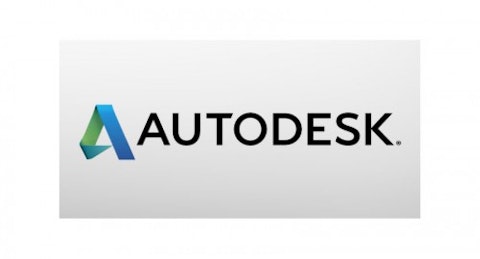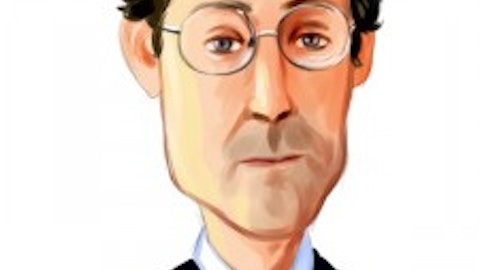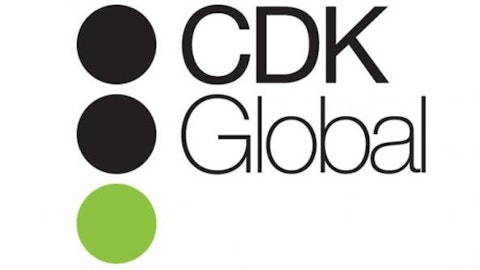Successful investing is about anticipating news and acting before everybody else. One of the most important news that moves stocks is takeover rumors. There are more than 300 takeover rumors every year. Stocks that are the subject of takeover rumors initially jump by an average of 2.9%, but lose 1.2% in the following month. The reason is simple: Only about 15% of takeover rumors are real and the remaining 85% are just speculation or never come to fruition. We previously discussed a strategy that will return 22% annually by shorting takeover rumors.
Shorting takeover candidates is a good strategy. However, in certain cases it may make sense to go long. We use hedge funds’ interest as a signal about the credibility of takeover rumors. Recently Stephen Mandel’s Lone Pine Capital (Stock Picks, Investor Letters) listed 7 stocks in its 2014 fourth quarter investor letter.

Lone Pine Capital is one of the most successful equity hedge funds ever. It was closed to new investors for about a decade until it started accepting new capital last year. It had around $27 billion in assets under management last year. We don’t have the latest cumulative return numbers for Lone Pine Capital but the long/short equity hedge fund has delivered around 20% annual returns since its inception 17 years ago.
We finished compiling more than 700 hedge funds’ 13F filings and ranked the 7 takeover candidates by the number of hedge funds in each stock. Cooper Companies Inc (NYSE:COO) is the least popular of these 7 takeover targets. There were 30 hedge funds with long equity positions in Cooper Companies at the end of 2014. That’s a decline of 1 hedge fund compared to the end of September 2014. Even though the number of hedge funds went down, the value of hedge funds’ positions went up by more than $250 million. Collectively, hedge funds owned 13% of Cooper Companies’ outstanding shares.
The other stock that didn’t make the top 5 was Jazz Pharmaceuticals plc (NASDAQ:JAZZ). The number of hedge funds in Jazz also declined during the fourth quarter as tax inversion-related acquisitions cooled down after the Treasury Department announced new rules. There were 32 hedge funds in JAZZ, owning less than 7% of the healthcare stock’s outstanding shares.
Here are the top 5 takeover targets identified by Lone Pine Capital and snapped up by at least 38 hedge funds:
5. CDK Global Inc (NASDAQ:CDK) is the fifth most-owned takeover target, and saw a large influx of funds and capital in the fourth quarter, coming off its split from parent company ADP (under which it was known as ADP Dealer Services) late in the third quarter of 2014. Fund ownership increased to 38 at the end of the year, from just 4, while capital leapt to $2.33 billion from just $90.95 million. Funds collectively owned 35.6% of CDK’s outstanding shares the second-highest ownership rate among all takeover targets. Those shareholders were led by Fir Tree, which owned 14.15 million shares, which in December, switched its position in CDK from passive to activist. Stephen Mandel meanwhile, owned 2.89 million shares. CDK is up 51.39% since it began trading in September.
4. Autodesk, Inc. (NASDAQ:ADSK) is the fourth-most attractive potential takeover target among hedge funds, with 39 funds having $2.50 billion invested, and ownership of 18.3% of Autodesk’s outstanding shares at the end of 2014. That was an increase of 2 funds from the previous quarter, though its popularity actually fell slightly as we added several more funds to our database during the past quarter. Mandel was the largest of those shareholders, with 14.46 million shares, which was a 229% increase in his position from the previous quarter, after first opening that position in the third quarter. The computer software company could be a potential takeover target of Adobe Systems Incorporated (NASDAQ:ADBE), who we’ll discuss below.

3. W.R. Grace & Co. (NYSE:GRA) is third on our countdown, with 42 funds owning $3.14 billion worth of shares, a 44.5% stake in the company, the largest of any on our list. Despite that, fund ownership declined by 6 over the fourth quarter, though capital investment actually increased by $400 million. Mandel’s new position accounted for a chunk of that, as he built a 2.90 million share stake during the fourth quarter, worth $277 million. The largest fund shareholder of those we track was Iridian Asset Management, which held 5.35 million shares at the end of the year, which was a 15% increase to its position from the previous quarter. W.R. Grace & Co. (NYSE:GRA) has announced its intentions to split its company into two, which should make each division (one focused on the chemicals side of the business, the other on the construction side) a more attractive pure play investment for interested buyers.
2. Adobe Systems Incorporated (NASDAQ:ADBE) lands in second, with 46 funds owning $3.54 billion worth of shares, which accounted for just 9.8% of the outstanding shares of the $39.32 billion market cap. Adobe has been at the center of takeover rumors before, including in 2010, when its shares soared 12% on news that Microsoft Corporation (NASDAQ:MSFT) was considering purchasing the software company. Those plans were eventually scuttled. Though Adobe shares have soared over the past two years, the company could be an attractive purchase for Apple Inc. (NASDAQ:AAPL); flush with cash as they are, and which has programs that compete, unsuccessfully, with Adobe’s own. Jeffrey Ubben is Adobe’s largest shareholder among the funds we track, with 16.0 million shares at the end of 2014, while Mandel was next with 12.18 million.
1. Humana Inc (NYSE:HUM) tops the list, with 49 funds owning $2.28 billion worth of shares. Fund ownership jumped from just 34 at the end of the third quarter, a nearly 50% increase. Larry Robbins of Glenview Capital was the largest shareholder with 2.21 million shares at the end of the year, and Humana’s performance in the first half of 2014 was one of the reasons he enjoyed strong 18% returns through the first half of last year, as Humana returned 23.74% during that time. Mandel owned 1.91 million shares, a slight decrease to his position from the previous quarter of 13%. Sterne Agee analyst Brian Wright noted that while Humana is a potential takeover target, it’s becoming more and more unlikely as its value continues to rapidly appreciate. Humana is now a $24.5 billion market cap company.
Disclosure: None




